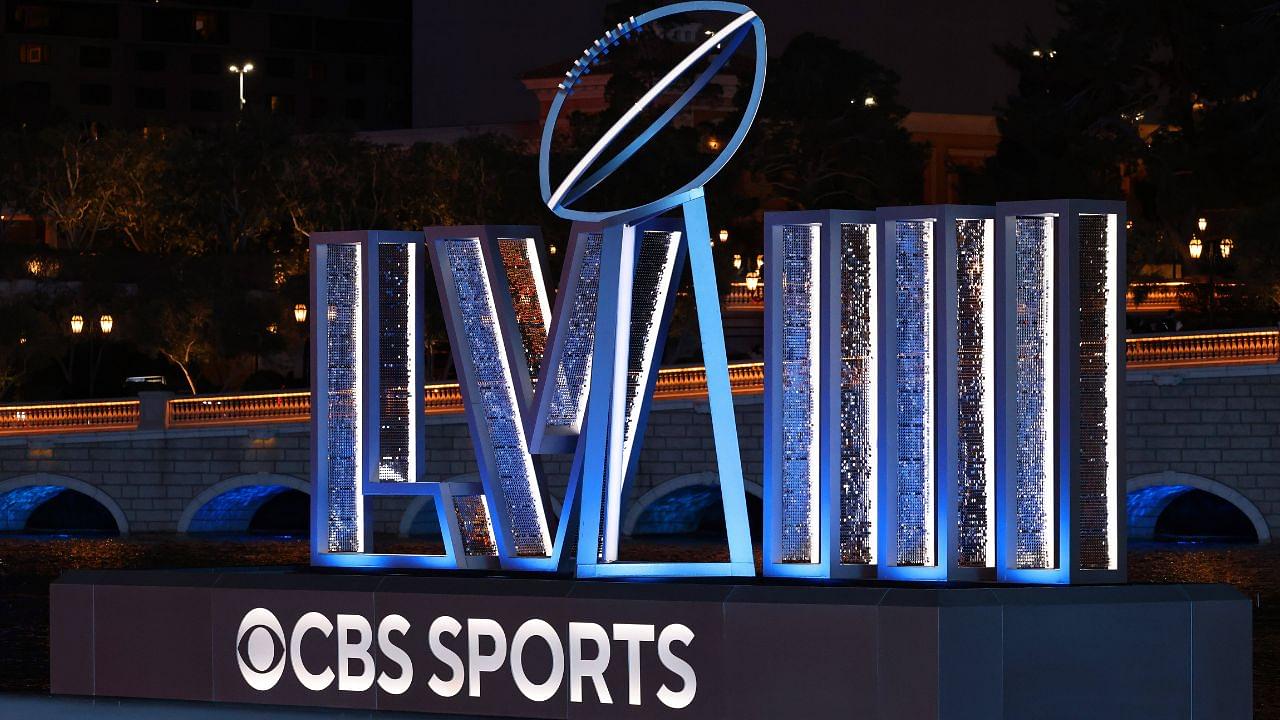The 2023-24 NFL season reached its climax, and the familiar figure of Patrick Mahomes and his Chiefs emerged victorious. Kansas City lifted their third Super Bowl trophy in 5 years, marking the first team since the 2004 Patriots to achieve back-to-back Lombardy Trophies and solidifying their dynasty. Nevertheless, there was another winner that might go unnoticed, the broadcast network CBS itself, which raked in the moolah in yet another successful season.
Advertisement
The Eye Network, which commenced in 1927, had its first taste of the NFL in 1956, during the league’s 37th season. It also had the opportunity to host the first-ever AFL-NFL World Championship game in 1967 alongside NBC, a precursor to today’s Super Bowl we know and love.
Since then, CBS has broadcast 21 more Super Bowls. It’s also worth noting that the legendary coach and color commentator, John Madden, began his broadcasting journey with the network, going on to call eight Championship games for them.
This year’s Super Bowl, which drew 123.4 million viewers, marked CBS’s first broadcast of the Big Game under the new contract signed with the NFL. They were the official broadcasters of the Finale for the 22nd time and generated an estimated $650 million in advertisement revenue at $7 million per 30-second commercial. The media giants also earned an additional $50 million, as the matchup went into overtime. This figure is substantially higher than what they made during their last Super Bowl broadcast.
The year’s Super Bowl made $650 million in estimated ad revenue. CBS reportedly earned an extra $50 million in revenue because the game went into overtime
With the average ad costing $7 million for 30 seconds, how much bigger will the NFL become as it expands internationally? pic.twitter.com/JeKB1knh2U
— Earn Your Leisure (@EarnYourLeisure) February 13, 2024
It’s also worth mentioning that Super Bowl LV, which took place during the COVID pandemic, recorded the lowest rating since 2007, attracting only 94.6 million viewers. CBS made $585 million, selling 30-second airtime slots for $5.5 million. Comparatively, Super Bowl LIII in 2019, also broadcasted by CBS, charged $4.51 million for a 30-second ad and made $412 million in revenue. Last but not least, Super Bowl 50 made $344 million, charging $4.47 million for a 30-second ad, as per Vivvix.
Given the increasing viewership and lucrative nature of the business, media companies are willing to invest substantial amounts to acquire the rights to broadcast these games, recognizing the immense value they hold in terms of audience reach and advertising revenue.
How Much Do the NFL and Super Bowl Broadcast Rights Cost?
The NFL, a $165 billion industry, generates revenue through sponsorships, player merchandise, and ticket sales. While these contribute to the financial success of the league, the majority of the revenue comes from TV rights, with CBS, FOX, ESPN, and NBC collectively bearing the bulk of these costs. Until 2022, the big four networks were collectively paying $5 billion annually to broadcast the game, and each had the opportunity to broadcast the Super Bowl.
Given that 75 of the most viewed programs on TV were pro football games, a number that continues to rise every year, it is only natural that networks are willing to invest significantly in broadcasting rights. This figure rose to $9 billion in 2023. CBS, for instance, will be paying a staggering $2.1 billion every year until 2033, a substantial increase from $1.1 billion in the previous contract. CBS will be telecasting the Super Bowl in 2023, 2027, and 2031, as per the Los Angeles Times.
NBC, contributing $2 billion, will get to broadcast the Sunday games and showcase the big games in 2025, 2029, and 2033. It will cost them $2 billion for those rights. Fox, which invested $2.25 billion in the broadcast rights to Sunday afternoon games, will also have the privilege of airing the Super Bowl in 2024, 2028, and 2032. Furthermore, there will be an increase in online streaming of the game, with nearly 6 million viewers watching the Super Bowl LV on online platforms, setting the record for an NFL game.
These improved broadcasting deals are expected to further boost the NFL’s already substantial $152 billion organization. Disney is exploring the possibility of offering equity in ESPN to the NFL, hoping that adding a valuable league partner will enhance content or distribution. The NFL Network, having lost prime matches to other media companies, could potentially benefit from a collaboration with ESPN.








